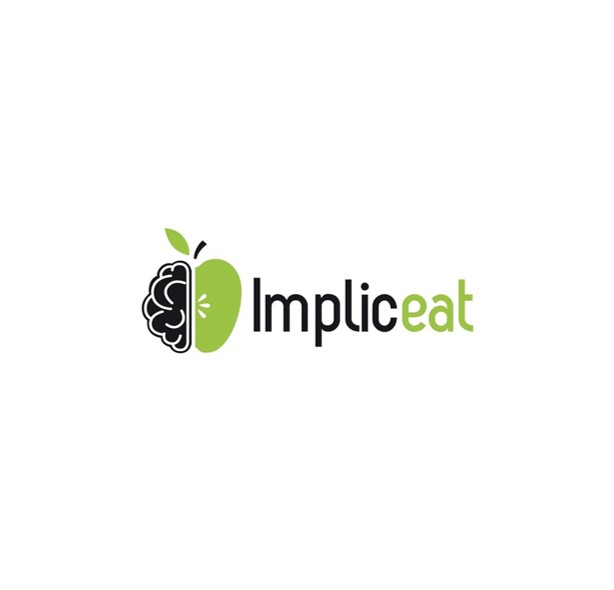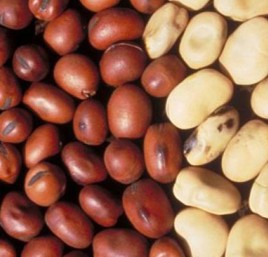Stéphanie CHAMBARON
Job
Research director INRAE
- 2017: Habilitation à Diriger des Recherches (HDR), Université de Bourgogne
- 2002-2005: PhD in Cognitive Psychology, Université de Bourgogne, Summa Cum Laude, with Honors
- 2001-2002: Psychologist's Professionalization Internship (600 hours) at the Réseau Family Therapy Center (Dijon) - ADELI number: 21 93 0765 9
Activities
Research theme
My research aims to understand and explain the cognitive mechanisms (implicit and explicit) involved in food choice in individuals of different ages and weight statuses in order to promote healthier and more sustainable choices.
Scientific approach
My research is structured around two main research axes: "Cognition-Obesity" and "Cognition-Sustainable Food".
Supervision and awards
I have supervised many Master's and PhD students during my career. Two PhD students have obtained prestigious awards for their research work:
- Marine Mas's doctoral work on "cognition and obesity" (PhD supervisor: S. Chambaron, co-supervisor: MC. Brindisi) was awarded the Jean Trémolière Thesis Prize and the Unesco Chair Thesis Prize (2021).
- Juliana Meléndrez-Ruiz's doctoral work on "pulses" (PhD supervisor: G. Arvisenet, co-supervisor: S. Chambaron) was awarded the Silver Medal Dufrenoy from the French Academy of Agriculture (2022).
Funding and projects
- 2026: GOAL Project: "Representations and knowledge of obese individuals regarding legumes: a cognitive approach"
This work received government funding managed by the French National Research Agency under France 2030, reference ‘"ANR-24-RRII-0003", and operated by the INRAE EXPLOR'AE programme.
- 2024 : ANR 23-PLEG-0004 - legume proteins - round 2- "Pulse Fiction" - Co-PI along with Christian Salles
- 2023 : ANR PRC "aiMOTIONS" (PI: D. Ginhac, ImVia, UBE) - Leader of the Work Package 4 "Food-related emotions analysis in Consumer Science"
- 2023 : BPI France Project "AlinoVeg": Innovating on plant-based foods. Coordinated by Roquette; Co-leader of Work Package 5: "Consumer acceptability, user experience, economic validation"
- 2017-2021 : ANR JCJC (ANR-17-CE21-0001) "IMPLICEAT": Relevance of implicit factors on feeding behaviour: How do food choice mechanisms vary between normal-weight and overweight/obese adults?
Key words
Psychology, cognition, implicit, food choices, obesity, sustainability, pulses.
Important publications
- Arvisenet, G., Chambaron, S., Hernandez‐Casiano, Z., Gerard‐Simonin, H., Tanguy, C., Hugol‐Gential, C., ... & Salles, C. (2026). ‘PULSE FICTION’: Development of Slightly Processed Pulse‐Based Foods and Recipes to Meet the Needs of Consumers and the Agricultural Sector and Improve Food Sustainability. Nutrition Bulletin. https://doi.org/10.1111/nbu.70041
- Meléndrez-Ruiz J., Dujourdy L., Arvisenet G., & Chambaron S. (2025). Disentangling consumer perceptions regarding plant-based food processing and formulation: Insights from a French study. Food Quality and Preference, 134, 105654, https://dx.doi.org/10.1016/j.foodqual.2025.105654, https://hal.inrae.fr/hal-05217562, OA
- Chene, O.; Chambaron, S.; Arvisenet, G.; & Dujourdy, L. (2025) Sustainable diets: Links between knowledge, motivations and eating practices. Peer Community Journal, Volume 5, article no. e99. https://doi.org/10.24072/pcjournal.622 OA
- Youssef J., Chambaron S., Dujourdy L., & Arvisenet G. (2025). Ultra-processed foods are of poor nutritional quality in French consumers' representations; a categorization study of images of food products without information. Food Quality and Preference, 133, 105609, https://dx.doi.org/10.1016/j.foodqual.2025.105609, https://hal.inrae.fr/hal-05099587, OA
- Chene O., Arvisenet G., Dujourdy L., & Chambaron S. (2024). “If I say sustainable diet”: What are French consumers’ social representations ? Food Quality and Preference, 119, 105224, https://dx.doi.org/10.1016/j.foodqual.2024.105224, https://hal.inrae.fr/hal-04593107, OA
- Arexis, M., Feron, G., Brindisi, M. C., Billot, P. É., & Chambaron, S. (2023). A scoping review of emotion regulation and inhibition in emotional eating and binge-eating disorder: what about a continuum? Journal of Eating Disorders, 11(1), 197. https://doi.org/10.1186/s40337-023-00916-7 , https://hal.science/hal-04281423
- Aveline, C., Leroy, C., Brindisi, M. C., Chambaron, S., Thomas-Danguin, T., & Sinding, C. (2022). Influence of obesity on saltiness and sweetness intensity enhancement by odors. Food Quality and Preference, 104685. https://doi.org/10.1016/j.foodqual.2022.104685
- Meléndrez-Ruiz, J., Dujourdy, L., Goisbault, I., Charrier, J. C., Pagnat, K., Nicklaus, S., ... & Chambaron, S. (2022). “You look at it, but will you choose it”: Is there a link between the foods consumers look at and what they ultimately choose in a virtual supermarket? Food Quality and Preference, 98, 104510. https://doi.org/10.1016/j.foodqual.2021.104510
- Zsoldos, I., Sinding, C., & Chambaron, S. (2022). Using event-related potentials to study food-related cognition: An overview of methods and perspectives for future research. Brain and Cognition, 159, 105864. https://doi.org/10.1016/j.bandc.2022.105864
- Monnery-Patris, S., & Chambaron, S. (2020). Added-value of indirect methods to assess the relationship between implicit memory and food choices in adult consumers as well as in children. Current Opinion in Food Science, 33, 14-20. https://doi.org/10.1016/j.cofs.2019.10.004
- Mas, M., Brindisi, M.-C., Chabanet, C., Nicklaus, S., Chambaron, S. (2019). Weight Status and Attentional Biases Toward Foods: Impact of Implicit Olfactory Priming. Frontiers in Psychology. Volume 10:1789. https://doi.org/10.3389/fpsyg.2019.01789
- Chambaron, S., Chisin, Q., Chabanet, C., Issanchou, S., & Brand, G. (2015). Impact of olfactory and auditory priming on the attraction to foods with high energy density. Appetite, 95, 74–80. https://doi.org/10.1016/j.appet.2015.06.012
FFOPP - Flavour, Food Oral Processing, & Perception
Projects
.jpg)
PULSE FICTION
Development of slightly processed PULSE-based Foods and recIpes to meet the needs of Consumers and agricultural secTor and Improve fOod sustaiNability

IMPLICEAT
Importance of IMPLICit factors in EATing behaviour: How do food-choice decision mechanisms differ in normal versus overweight/obese adults?

MEMORIES
Mental health status as a determinant of nutrition-related chronic diseases



.jpg)
